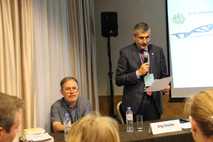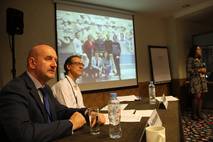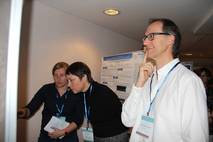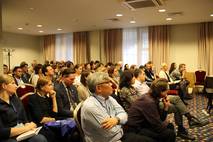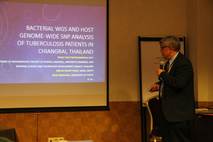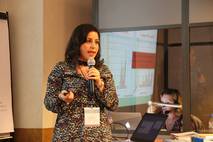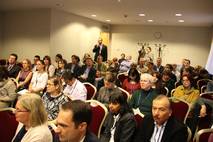The 2nd St. Petersburg Symposium on Tuberculosis and Mycobacteria: Molecular Approach was hold in St. Petersburg, Russia on 5-6 December 2018. It was organized within the frames of the regular anniversary conference of St. Petersburg Pasteur Institute dedicated to the 110 years since founding of the institute and 95 years since its naming after Louis Pasteur.
The symposium was organized and chaired by Dr Igor Mokrousov and addressed the interrelated basic and applied issues of modern mycobacteriology such as molecular evolution and phylogenomics, host-microbe interactions and pathogenesis, coevolution of M. tuberculosis with the humans, new genomic and postogenomic technologies. While the use of next generation/whole genome sequencing was mentioned in many talks and posters, it was the theme of a special section devoted to its practical implementation in national reference laboratories for routine monitoring of circulating strains, tracing their transmission and rapid and comprehensive detection of drug resistance. The sufficient attention was also given to nontuberculous mycobacteria that cause mycobacterial diseases in humans, first of all, M. avium (genomics and animal models), M. kansasii (multicenter genotyping project), and M. abscessus.
The official language of all oral and poster presentations was English (simultaneous translation into Russian was also provided).
The symposium was attended by researchers, laboratory staff, medical doctors, graduate and PhD students working in the field of medical microbiology, epidemiology, genomics and bioinformatics, phthisiatry, pulmonology, infectious diseases and immunogenetics. Participants represented 24 countries, in particular, Russia, USA, Japan, Thailand, South Africa, and 14 EU countries. The symposium consisted of 5 consecutively organized sections: Evolution and phylogenomics, Virulence and resistance, Whole genome sequencing and personalized medicine; Nontuberculous mycobacteria; Molecular diagnosis and molecular epidemiology. In total, 35 oral talks were delivered by 26 foreign and 9 Russian speakers representing academic institutes and universities, federal research institutions, national reference laboratories, and WHO.
One of the sessions was devoted to the satellite event of the symposium, a 2nd meeting of the FATE (Fight Against Tuberculosis in central and eastern Europe; https://fate-consortium.org/) consortium chaired by Tomasz Jagielski and Igor Mokrousov and attended by participants from several European countries. The ongoing initiatives (e.g. M. kansasii global genotyping project) and possibilities for new multicenter and bilateral projects were presented and discussed.
The Poster session included 26 posters by 15 foreign and 11 Russian presenting authors. The evaluation committee decided to grant two Best Poster Awards to Margaretha de Vos (Stellenbosch University, Cape Town, South Africa) and Irina Linge (Central Tuberculosis Institute, Moscow, Russia).
The symposium became a multidisciplinary event at the intersection of population and systems biology, genome bioinformatics, fundamental and personalized medicine. It was useful to promote networking, exchange of knowledge and experience, to update information in current topics, and to present new data. The next (third) symposium was tentatively scheduled to be organized in 2021.
The symposium received a partial support from Russian Foundation for Basic Research (grant 18-04-20102), from international publishers (Elsevier N.V. and PLoS One) and from companies (Applied Maths - a bioMerieux company [Belgium], Russian companies Syntol, Diaem, Interlabservice, Profilab). The funders had no role in decision to organize the symposium and preparation of its scientific program.
Website: http://pasteur110.ru/wp-content/Program-of-Symposium-eng.html
Program of the symposium can be found here: PDF file Program.
Abstracts published in the Russian Journal of Infection and Immunity can be found here: PDF file Abstracts.

